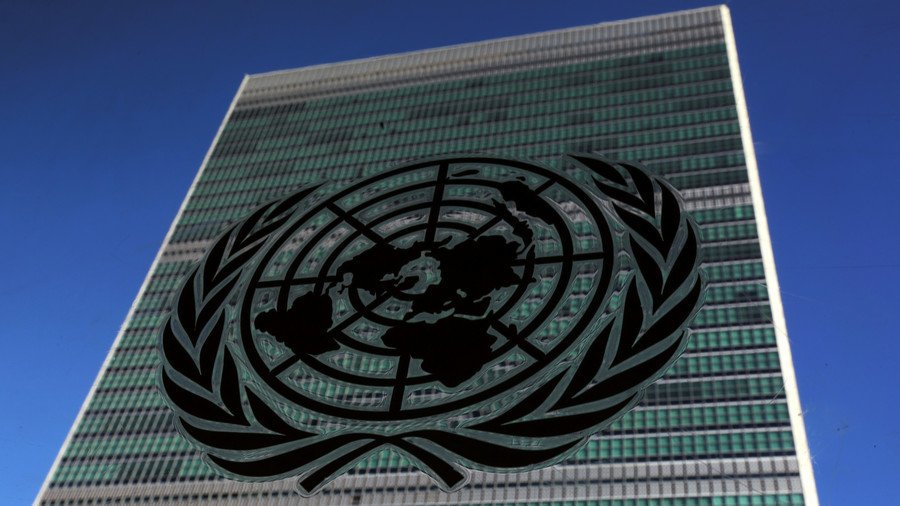Statement by Deputy Permanent Representative Anna Evstigneeva at an open "Arria-formula" VTC of UNSC members "Protecting the Peacekeeper: Suppressing the Deployment of Improvised Explosive Devices against Peace Operations"
Mr. President,
No doubt, ensuring safety and security of peacekeepers is a vital task during the whole life-cycle of any mission. It is especially important in challenging security environments, where peacekeepers could face asymmetrical threats. Improvised explosive devices (IEDs) are one of the major types of weapons at the disposal of non-state entities, including terrorists.
UN peacekeepers are not mandated to combat terrorist threats, and the primary responsibility for safety and security of the UN personnel rests with the Host State. In this regard, it is important to enhance cooperation and dialogue between the UN missions and the Host State authorities on these issues. International assistance in strengthening host governments capacities to address the proliferation of weapons and ammunitions, to prevent loss of military equipment, including of possible precursors for IEDs is in a great demand.
There are peacekeeping operations that are specifically prone to such threats. The situation in Mali and in the Sahel region remains extremely difficult. We support measures adopted by MINUSMA to protect civilian population and its personnel.
Somalia is a country where the federal government and AMISOM continue to face an increasing threat of IEDs in its fight with Al-Shabaab. We call upon the international community and the relevant UN agencies to step-up their support to mitigate the IED threat.
The United Nations Mine Action Service (UNMAS) plays an important role in global mine action. For years, Russia has been its consistent supporter. In 2019, we donated to UNMAS $1 million. Our experts have been engaged with the UNMAS colleagues on demining in Syria and elaboration of international standards to counter the IED threat.
The Russian Armed Forces have been actively engaged in demining in a wide range of countries. We reaffirm our readiness to share best practices and experience in humanitarian demining and countering IED threats, including through the International Mine Action Centre of the Russian Ministry of Defense. We closely cooperate with the Geneva International Center for Humanitarian Demining.
Mr. President,
There is a pressing need to strengthen mechanisms of inter-state cooperation in the area of preventing and countering crimes committed with the use of IEDs. We wish to highlight the importance of rigorous implementation of Security Council resolutions 2370 and 2482, including their provisions on combating illegal manufacturing, possession, stockpiling and trade of explosives and IED components in the context of preventing their use by terrorists. The Russian Federation initiated and sponsored the first ever capacity-building project on the nexus between arms, crime and terrorism under the auspices of UNOCT.
The Convention on Certain Conventional Weapons (CCW) and its Amended Protocol II on mines also provide an important venue to discuss the issue of IED threat.
We would like to call on all States that haven’t done so to join the 1994 Convention on the Safety of United Nations and Associated Personnel, and the 1997 International Convention for the Suppression of Terrorist Bombings.
It is also vital to continue the dialogue between the UN Member States and the Monitoring Team (MT) of UNSC Committees 1267/1989/2253 and of Committee 1988 in order to have the experts informed of the facts and circumstances of terrorists using IEDs. We should also engage the capacity of Interpol.
Mr. President,
In conclusion, let me reconfirm that protection of civilians in conflict, as well as the safety and security of the Blue Helmets remain among the top priorities for the Russian delegation. It is of critical importance that the Secretariat works closely with Member States, including through C-34, in a transparent manner in improving the security of peacekeepers. UN people on the ground should possess all necessary capabilities, adequate medical support, relevant training, and other tools to implement their mandates even in very hostile environments. At the same time, it is clear that all these efforts cannot solve the problems, posed by terrorist and IED threats alone. The fundamental thing is to help the host countries, weakened by conflict, not only to become capable to fight these threats, but also to be able to extend effective control over their national territories and establish the rule of law. Any peacekeeping operation is first and foremost an essential UN tool in pursuit of sustainable political solutions.
Thank you.
